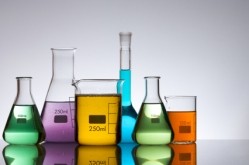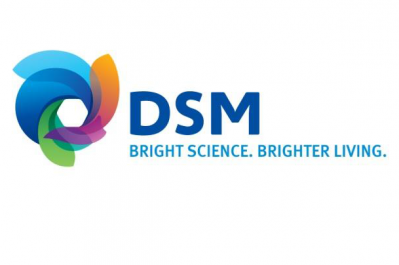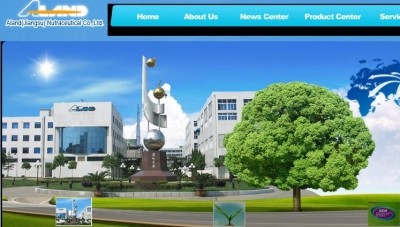DSM expands vitamin C capabilites with acquisition of Aland China

Aland currently produces a range of Vitamin C derivatives in a number of facilities throughout mainland China, and as well as the personal care sector, it also supplies the nutrition and health care sectors.
The two companies have been in discussions concerning the deal since April this year, and say that the financial details of the acquisition that has been brokered will not be disclosed, while the companies are also still waiting to fulfill regulatory obligations before it is finalised.
The time-frame for the deal to fulfill all requirements is expected to be finalized in the first quarter of 2015, the companies say.
Aland is a leading China Vitamin C manufacturer
Aland is one of the leading Vitamin C manufacturers in China, so the deal is expected to significantly strengthen DSM’s position within the fast growing health care and personal care markets in the country, and the Asia Pacific region as a whole.
Currently DSM’s other remaining Vitamin C production facility is in Dalry, Scotland, and the company says it ‘remains fully committed to maintaining production there.
Aland was established in 1990 and has its main production facility situated in Jingjiang, Jiangsu Province. In 2013 it had a turnover of $90 million and employed more than 1,850 people.
After the acquisition has been approved, DSM says it intends to invest in the Aland’s production facilities, with a specific aim to operational aspects such as quality, as well as enhancing its environmental profile.
Vitamin C in demand for anti-aging formulations
Vitamin C is a commonly used skin care ingredient and comes in various forms including ascorbic acid, L-ascorbic acid, ascorbyl palmitate, sodium ascorbyl phosphate, retinyl ascorbate, tetrahexyldecyl ascorbate, and magnesium ascorbyl phosphate.
As a cosmetics ingredient it is known to enhance a formulation’s anti-oxidant properties, which makes it a commonly addition to anti-ageing product lines.
Further boosting its anti-ageing skin care properties, it is also said to enhance collagen production in the skin, specifically tackling and heightening dermal collagen production, which, when depleted, can cause wrinkling.




![Latest developments from the South Korean beauty market. [Getty Images]](/var/wrbm_gb_food_pharma/storage/images/_aliases/wrbm_tiny/publications/cosmetics/cosmeticsdesign-asia.com/headlines/brand-innovation/korea-focus-able-c-c-kolmar-and-more-in-this-k-beauty-round-up/17357973-1-eng-GB/Korea-focus-Able-C-C-Kolmar-and-more-in-this-K-beauty-round-up.jpg)

![Able C&C has furthered its partnership with Japanese discount chain Daiso with new makeup launch. [A'pieu]](/var/wrbm_gb_food_pharma/storage/images/_aliases/wrbm_tiny/publications/cosmetics/cosmeticsdesign-asia.com/headlines/brand-innovation/a-pieu-and-daiso-launch-exclusive-2-makeup-line/17339117-1-eng-GB/A-pieu-and-Daiso-launch-exclusive-2-makeup-line.jpg)
![Down Under Enterprises is setting sights on the Asian market as environmental sustainability and traceability become increasingly important. [Getty Images]](/var/wrbm_gb_food_pharma/storage/images/_aliases/wrbm_tiny/publications/cosmetics/cosmeticsdesign-asia.com/headlines/market-trends/down-under-enterprises-shifts-focus-to-china-as-environmental-sustainability-traceability-come-into-the-spotlight/17304932-1-eng-GB/Down-Under-Enterprises-shifts-focus-to-China-as-environmental-sustainability-traceability-come-into-the-spotlight.jpg)
![News updates from Shiseido, Dr.Ci:Labo, Sephora, and more. [Shiseido]](/var/wrbm_gb_food_pharma/storage/images/_aliases/wrbm_tiny/publications/cosmetics/cosmeticsdesign-asia.com/headlines/brand-innovation/updates-from-shiseido-dr.ci-labo-sephora-and-more/17334944-1-eng-GB/Updates-from-Shiseido-Dr.Ci-Labo-Sephora-and-more.jpg)

![Clariant has underscored the importance of localisation strategies and distribution capabilities in China with beauty trends evolving at a rapid pace. [Getty Images]](/var/wrbm_gb_food_pharma/storage/images/_aliases/wrbm_tiny/publications/cosmetics/cosmeticsdesign-asia.com/article/2024/04/16/clariant-emphasises-importance-of-localisation-in-the-era-of-viral-trends/17327969-1-eng-GB/Clariant-emphasises-importance-of-localisation-in-the-era-of-viral-trends.jpg)
